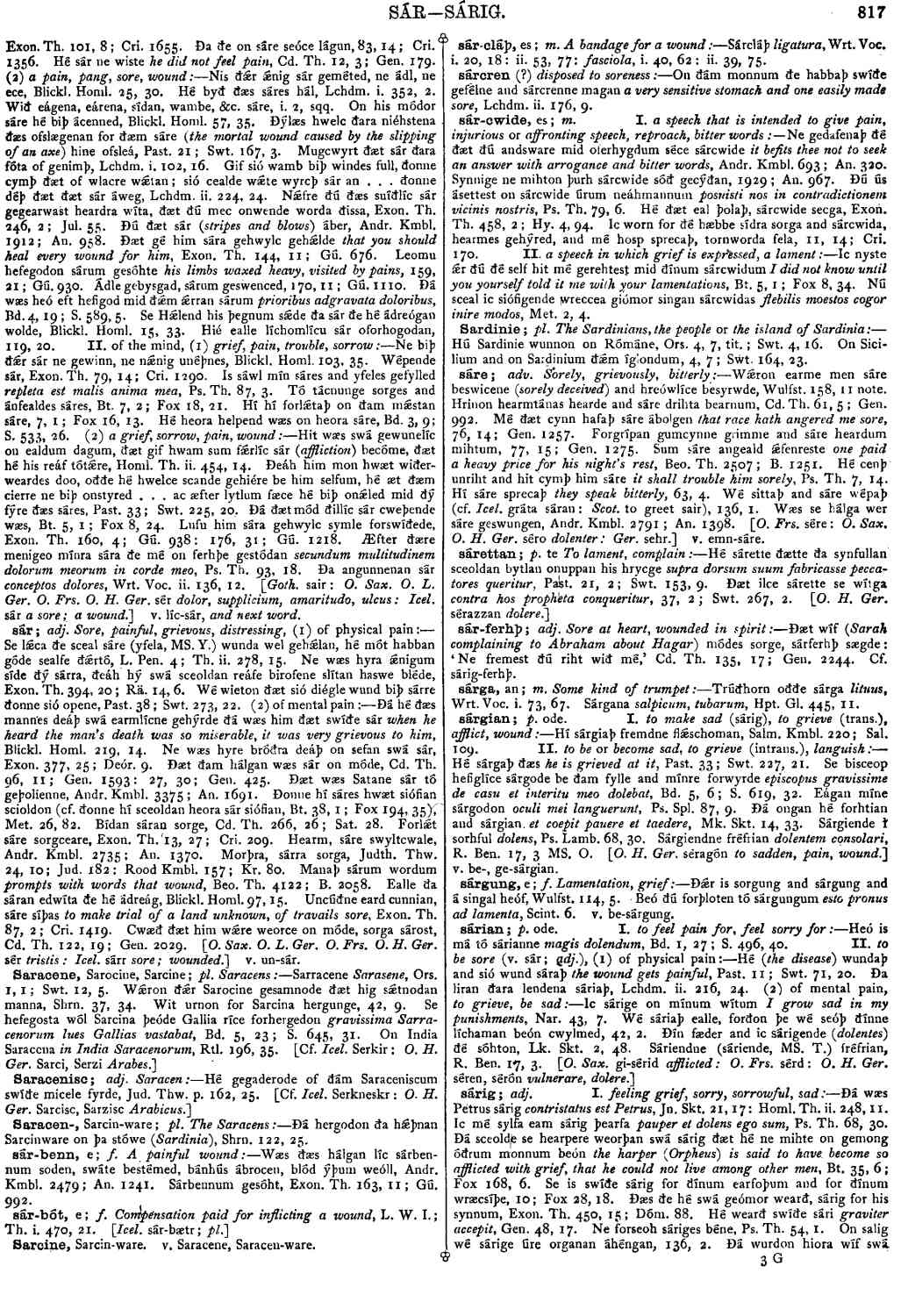sár
- adjective
-
Se lǽca ðe sceal sáre (yfela,
- MS. Y.)
-
Ne wæs hyra ǽnigum síðe ðý sárra, ðeáh hý swá sceoldan reáfe birofene slítan haswe bléde,
- Exon. Th. 394, 20; Rä. 14, 6.
-
Wé wieton ðæt sió diégle wund biþ sárre ðonne sió opene,
- Past. 38; Swt. 273, 22.
-
Ðá hé ðæs mannes deáþ swá earmlícne gehýrde ðá wæs him ðæt swíðe sár
when he heard the man's death was so miserable, it was very grievous to him,
- Blickl. Homl. 219, 14.
-
Ne wæs hyre bróðra deáþ on sefan swá sár,
- Exon. 377, 25; Deór. 9.
-
Ðæt ðam hálgan wæs sár on móde,
- Cd. Th. 96, 11; Gen. 1593: 27, 30; Gen. 425.
-
Ðæt wæs Satane sár tó geþolienne,
- Andr. Kmbl. 3375; An. 1691.
-
Ðonne hí sáres hwæt siófian scioldon (cf. ðonne hí sceoldan heora sár siófian,
- Bt. 38, 1; Fox 194, 35), Met. 26, 82.
-
Bídan sáran sorge,
- Cd. Th. 266, 26; Sat. 28.
-
Forlǽt sáre sorgceare,
- Exon. Th. 13, 27; Cri. 209.
-
Hearm, sáre swyltcwale,
- Andr. Kmbl. 2735; An. 1370.
-
Morþra, sárra sorga,
- Judth. Thw. 24, 10; Jud. 182: Rood Kmbl. 157; Kr. 80.
-
Manaþ sárum wordum
prompts with words that wound,
- Beo. Th. 4122; B. 2058.
-
Ealle ða sáran edwíta ðe hé ádreág,
- Blickl. Homl. 97, 15.
-
Uncúðne eard cunnian, sáre síþas
to make trial of a land unknown, of travails sore,
- Exon. Th. 87, 2; Cri. 1419.
-
Cwæð ðæt him wǽre weorce on móde, sorga sárost,
- Cd. Th. 122, 19; Gen. 2029.
Bosworth, Joseph. “sár.” In An Anglo-Saxon Dictionary Online, edited by Thomas Northcote Toller, Christ Sean, and Ondřej Tichy. Prague: Faculty of Arts, Charles University, 2014. https://bosworthtoller.com/26416.
Checked: 0